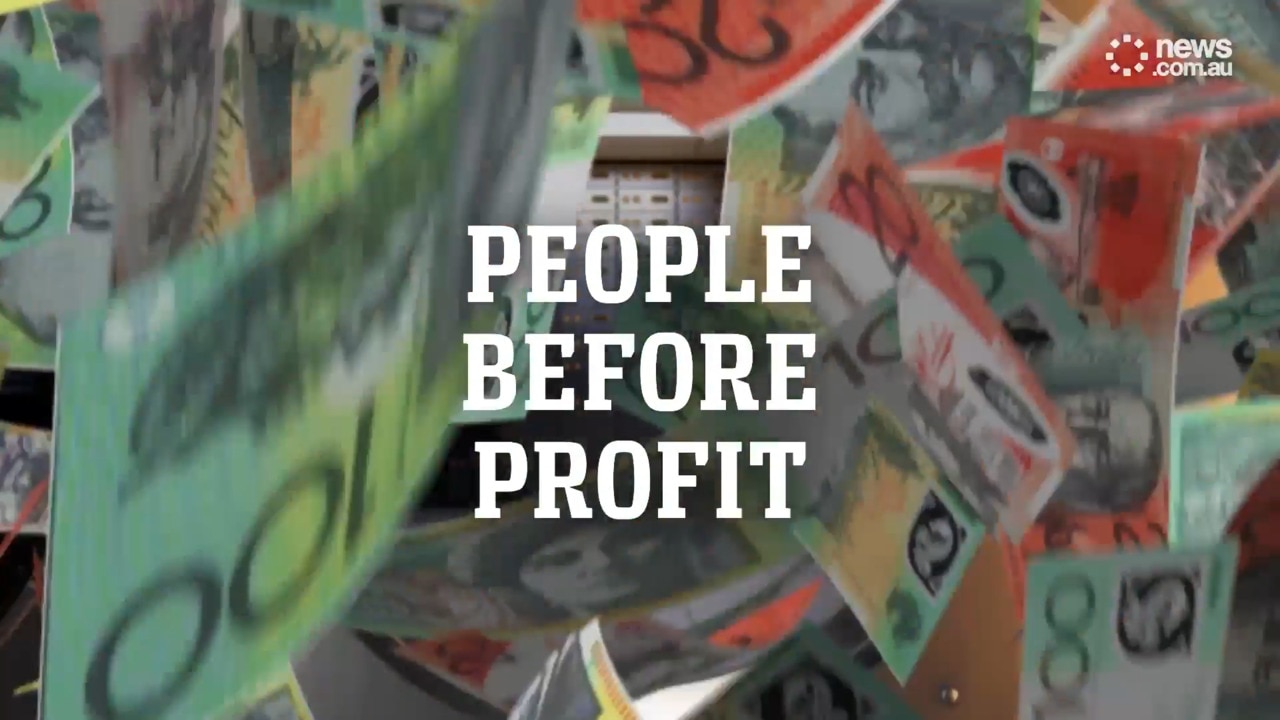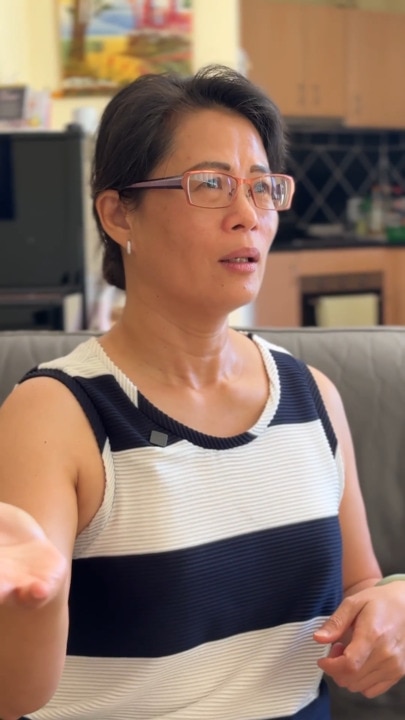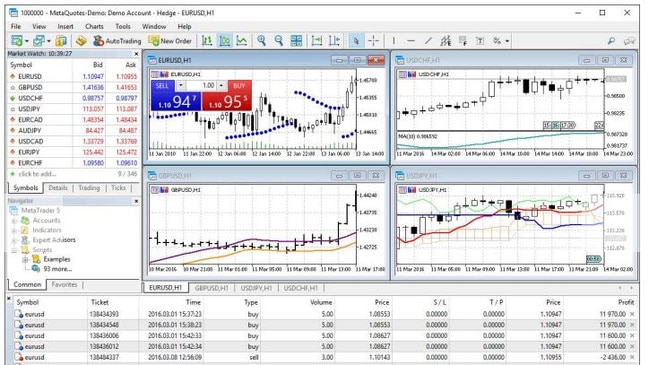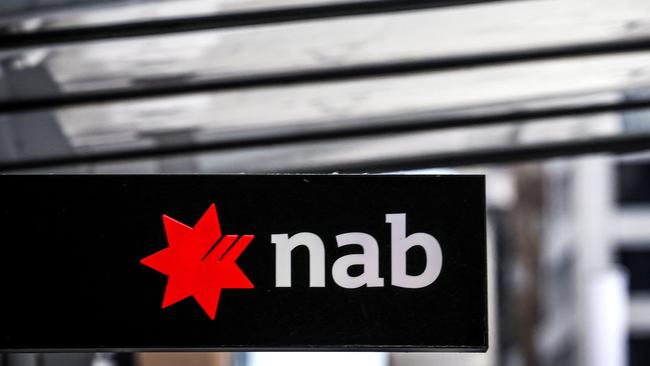Bank sues customer who lost $2.6m to scammers
Warning: Distressing. She thought the worst thing would be scammed out of $2.6 million. But it was just the beginning of her six-year long ordeal.

Costs
Don't miss out on the headlines from Costs. Followed categories will be added to My News.
When Sylvia Chou lost $2.6 million to scammers and was brought to the brink of suicide, she couldn’t have imagined the worst was yet to come.
The Sydney accountant, then 52, fell for a sophisticated currency exchange trading scheme run by scammers, who cleaned out her personal savings then got her to borrow money from friends and family and refinance her properties.
Although that was six years ago, the case is far from over; In September, the bank she blames for failing to detect the scam launched legal proceedings to foreclose on her home.
NAB is now suing her for $1.4 million plus interest because of a discrepancy when she refinanced her properties.
Ms Chou is lending her support to news.com.au’s campaign People Before Profit, calling on the federal government to make it mandatory for banks to compensate scam victims – just like in the UK.
In October last year, the UK introduced world leading legislation making compensation mandatory for scam victims within five business days unless in cases of gross negligence.
IT’S TIME BANKS PUT PEOPLE BEFORE PROFIT. SIGN THE PETITION HERE.

If Ms Chou loses the legal case, not only will they repossess her home, but she will have to declare herself bankrupt which will mean she loses her accounting licence.
“Bankruptcy means no future for me because I can’t be a tax agent anymore, I can’t be a qualified accountant anymore,” Ms Chou, now 57, told news.com.au. “What else can I do?”
Have you been scammed? Get in touch | alex.turner-cohen@news.com.au
Ms Chou first came across the scam in 2019 after spotting an advertisement on social media that seemed to be endorsed by reality TV show Shark Tank, about how to grow your investment portfolio.
It involved investing money into a currency trading platform called BlueLexus.
Ms Chou has successfully traded before and didn’t see anything amiss. She also couldn’t find any negative reviews and it was registered to a parent company in the US.
“I did my homework. I checked it,” she said. “It was very professional.”
They asked her for 100 points of ID and also wanted a current utility bill to prove where she lived in order to open an account for her, which made it seem more legitimate.
The company also had a BPAY account, and she made all $2.6 million of transfers to this account.


Ms Chou believed she was putting money into an account trading in the foreign exchange market, selling foreign currencies to try to make a profit.
She initially put in $250 to start with but knew she needed to put in more for the investment to grow substantially, so she added in another $10,000.
She continued to put in more money as her investment appeared to be doing well.
BlueLexus then said they would match whatever she put in, dollar for dollar.
But a few weeks later, when she tried to withdraw her cash, the scammers said she had to reimburse them for the money they had put in.
So she asked family members and friends for a loan, thinking she’d return it to them in no time.
Have you been scammed? Get in touch | alex.turner-cohen@news.com.au
Once this was paid, the scammers hit her with another big fee – she needed to top up her investment with $1.5 million as a margin call.
It was at this point she refinanced her home and her two investment properties to pay up, a decision that has now come back to haunt her.
But still her money wouldn’t be released, and soon Ms Chou came to the devastating conclusion it was a scam.
She owes friends and family more than half a million dollars, as well as the money from the refinancing. She said some lifelong friends cut her off. Some of them are now estranged from their own families, having borrowed the money from them.
Ms Chou said she had contemplated killing herself but she is in a better place now.
“I definitely think about suicide,” she said through tears. “Family and friends are what keep me going because I can’t betray (their) trust.”
Ms Chou claims NAB failed to alert her over the three-month period when she was sending millions of dollars overseas.
She also claims the bank never flagged anything was wrong even though one of the first transfers converted from Australian dollars to Russian roubles.
She made more transfers in those three months than she had in the previous six years of being a NAB customer, according to her bank statement.
When she refinanced, she switched banks to Westpac.
The first time she tried to make a payment to the scammers through her Westpac account, the bank blocked the transaction. Then they forced her to come into the branch and complete 100 points of ID.
But she claims this didn’t happen at NAB.
In another twist, despite Westpac paying out her loans with NAB as part of the refinancing, NAB never closed her bank account.
This allowed NAB to launch legal action against her.
Ms Chou claims NAB didn’t just serve her with their legal papers – they also handed the documents to the tenants at her two other properties.
Her tenants now know lots of personal information about her, which she did not give the bank permission to share, and one set of renters has even indicated they plan to buy the property if it is put on the open market.
She also questions how they were able to breach her privacy in this way.
In a statement, NAB said it served her tenants the statement of claim because it was “a requirement by law and not a breach of privacy”.
NAB said it wouldn’t comment further as the matter is before the courts.
“NAB takes its responsibility to scam prevention seriously,” a NAB spokesperson said.
“We have a bank-wide scam strategy in place to tackle this global epidemic. While we cannot comment on specific cases, we urge all customers who believe they have been scammed to assist, so the matter can be fully investigated.”

At first, Ms Chou held out hope that she could recover the sum total of her losses through the Australian Financial Complaints Authority (AFCA) by arguing that NAB had breached anti money laundering laws and should have done more to stop the transactions.
But AFCA said that particular issue wasn’t under their remit, but rather another government body, the Australian Transaction Reports and Analysis Centre (AUSTRAC).
In the end, her complaint with AFCA resulted in the body ruling against her in the bank’s favour. She was also ordered to pay all costs in the matter.
She only managed to recover $3000.
“AFCA are hopeless,” she said.
Ms Chou is now having to spend more money hiring lawyers to prepare for a legal battle against NAB.
alex.turner-cohen@news.com.au
Originally published as Bank sues customer who lost $2.6m to scammers





